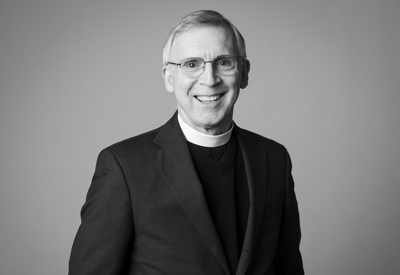 Dear Friends,
Dear Friends,
Paris, France is six hours ahead of Toledo, so the Opening Ceremony of the 2024 Summer Olympics will begin at 1:30 pm today. Hosting the Olympics – whether the summer or winter edition – is an enormous task for any city, and it falls to Paris this year to welcome athletes and spectators from around the world to the games which had their origin in ancient Greece around 3,000 years ago. The ancient games lasted until 393 AD when the Theodosius I banned them to promote Christianity. (Leave it to the Christians to be the party poopers.)
Unlike other opening ceremonies, this year’s will be held outside a stadium. The parade is set to be held in the heart of Paris along the Seine, its main artery. Each national delegation will have a boat which will join a parade of boats moving from east to west in which some 10,500 athletes will cross through the center of Paris. By the way, work on cleaning the Seine for the Olympics has been going on since 2015. More than $1.5 billion has been spent so the river could be used for swimming events. Nine days ago, the mayor of Paris, Anne Hidalgo, took a swim to demonstrate how clean the Seine is now. I’ll spare you the details of how the sewer infrastructure was renovated. It’s enough to say that, even with the building of a giant underground water storage basin in central Paris, planners still hope there won’t be heavy rain between now and August 11.
Not surprisingly, the unique plan has already had an enormous effect on the parts of the Ville lumière – the City of Light. Grandstands and platforms have been under construction since mid-June, a project that was scheduled to be completed yesterday. Only four bridges crossing the Seine have been spared from construction during this preparation time. The upper and lower quays have been closed to the public for the last week. And even the Tour de France – the most famous bicycle race in the world – moved its traditional finish on the Champs-Elysees to a sprint between Monaco and Nice in the south of France.
When the Emperor Theodosius banned the games back in the fourth century, he must have forgotten about all the athletic metaphors employed by St. Paul and others to describe the Christian life. The author of the Epistle to the Hebrews instructs his readers to “run without stumbling the race that is set before [them.]” Drawing on images of ancient footraces in Greece, Rome, and Israel, the Christian life is described as a marathon, not a sprint – one that requires faith, stamina, commitment, and discipline.
Paul reminded the Corinthians that “Every athlete exercises self-control in all things” – and called on them to exercise self-control in a society where there was precious little of it. The letters written to Timothy tell him that only an athlete who is physically fit will win the prize, and that he, as a believer, must do the same. “Train yourself for godliness,” Paul wrote to his mentee. “Train” (Greek gymnazō) literally means “to exercise” and enters the English language as gymnasium. And, in his second letter, Paul tells Timothy that an athlete has to compete according to the rules. Similarly, every believer must live in obedience to God. Paul writes, “An athlete is not crowned unless he competes according to the rules.”
So, while we are watching people whose self-discipline and training has brought them to participate in Olympic-level competition, we might reflect on what kind of shape our spiritual lives are in. And if we find they’re out of shape and flabby, perhaps it’s time to start some kind of training program. Prayer, scripture reading, worship, meditation, journaling, or serving in some way have long been recommended by spiritual coaches as ways to get in good spiritual shape.
Let me paraphrase the opening line of every Olympics, summer or winter, and say, “I declare open the Games of Trinity Episcopal Church, celebrating the 47th Summer Spiritual Games. (187 years Trinity has been in existence, divided by four). Game on!
Blessings,
Stephen Applegate
